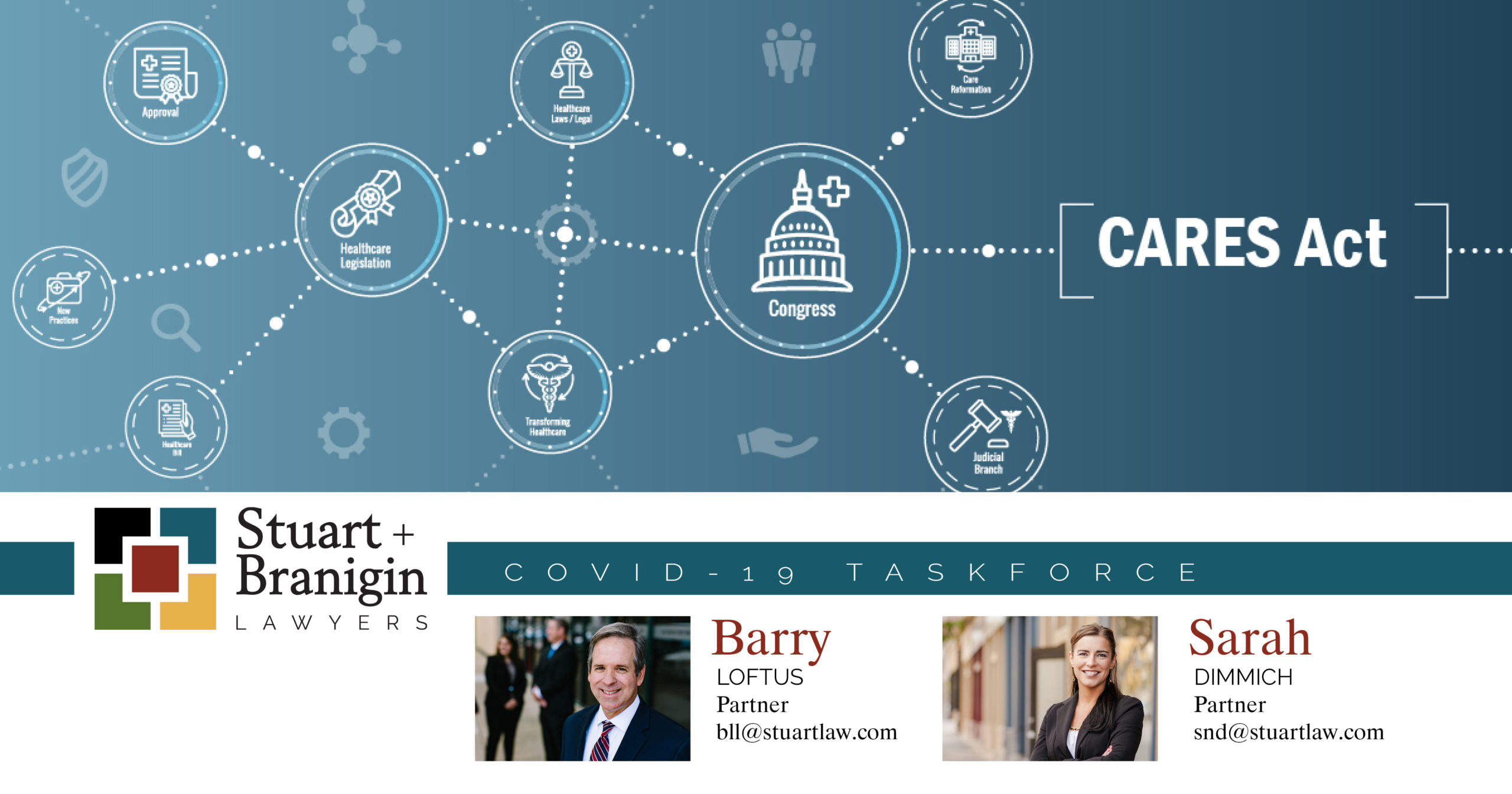CARES Act: Pandemic Help for Employers and Workers

The Coronavirus Aid, Relief and Economic Security Act, or CARES Act, contains important benefits for employers and small businesses. Among those:
Expansion of Unemployment Benefits: The CARES Act temporarily modifies and expands unemployment insurance coverage for individuals in several ways. Section 2102 of the CARES Act provides Pandemic Unemployment Assistance (PUA) to persons who do not qualify for state unemployment coverage. Individuals who are eligible for PUA or regular state unemployment coverage will qualify for Federal Pandemic Unemployment Compensation (FPUC) in the amount of $600 per week. Persons eligible for state unemployment coverage will receive FPUC in addition to the individual’s regular unemployment benefit and up to 13 additional weeks of unemployment coverage. In some cases, workers that have experienced layoffs or other reductions in employment may also qualify for expanded unemployment benefits. An individual’s eligibility for unemployment benefits under state unemployment programs or the CARES Act will depend on a number of factors related to the worker’s employment and earnings history and the circumstances surrounding the individual’s unemployment. The U.S. Department of Labor has just released guidance on PUA, which you can find here.
The Paycheck Protection Program: Section 1102 of the Cares Act, more commonly known as the “Paycheck Protection Program”, provides federally-guaranteed loans to certain eligible businesses by temporarily expanding the SBA program. Eligible businesses may borrow up to 250% of their monthly payroll costs to cover payroll, benefit, and certain other overhead expenses. Borrowers are eligible for loan forgiveness subject to reductions if an employer reduces the number of employees.
Employee Retention Credit: Section 2301 permits certain “eligible employers” to offset up to 50% of up to $10,000 in wages against the employer’s social security contributions. Employers may qualify for this retention credit if the business is subject to a mandatory COVID-19 closure or if the business suffers sufficient declines in business revenue.
Delayed Payment of Social Security Taxes: Section 2302 of the CARES Act allows employers and self-employed persons to defer payment of social security payroll taxes over a two-year period.
The CARES Act and other legislative responses to COVID-19 are quickly changing the business and legal landscape for employers. If you have questions about how COVID-19 is affecting your business, please contact Stuart & Branigin today.
COVID-19 Task Force
Please reach out to us for specific legal advice or with any decision-making questions you may have. We are here to help.
Barry L. Loftus
Sarah N. Dimmich
David M. Stupich

Stuart & Branigin was founded in 1878 in Lafayette, Indiana. Our experienced and knowledgeable lawyers provide trusted counsel to local, regional and national clients. Our firm is composed of five practice groups, Corporate and Non-Profit, Litigation, Personal Injury, Private Client Services, and Transportation.